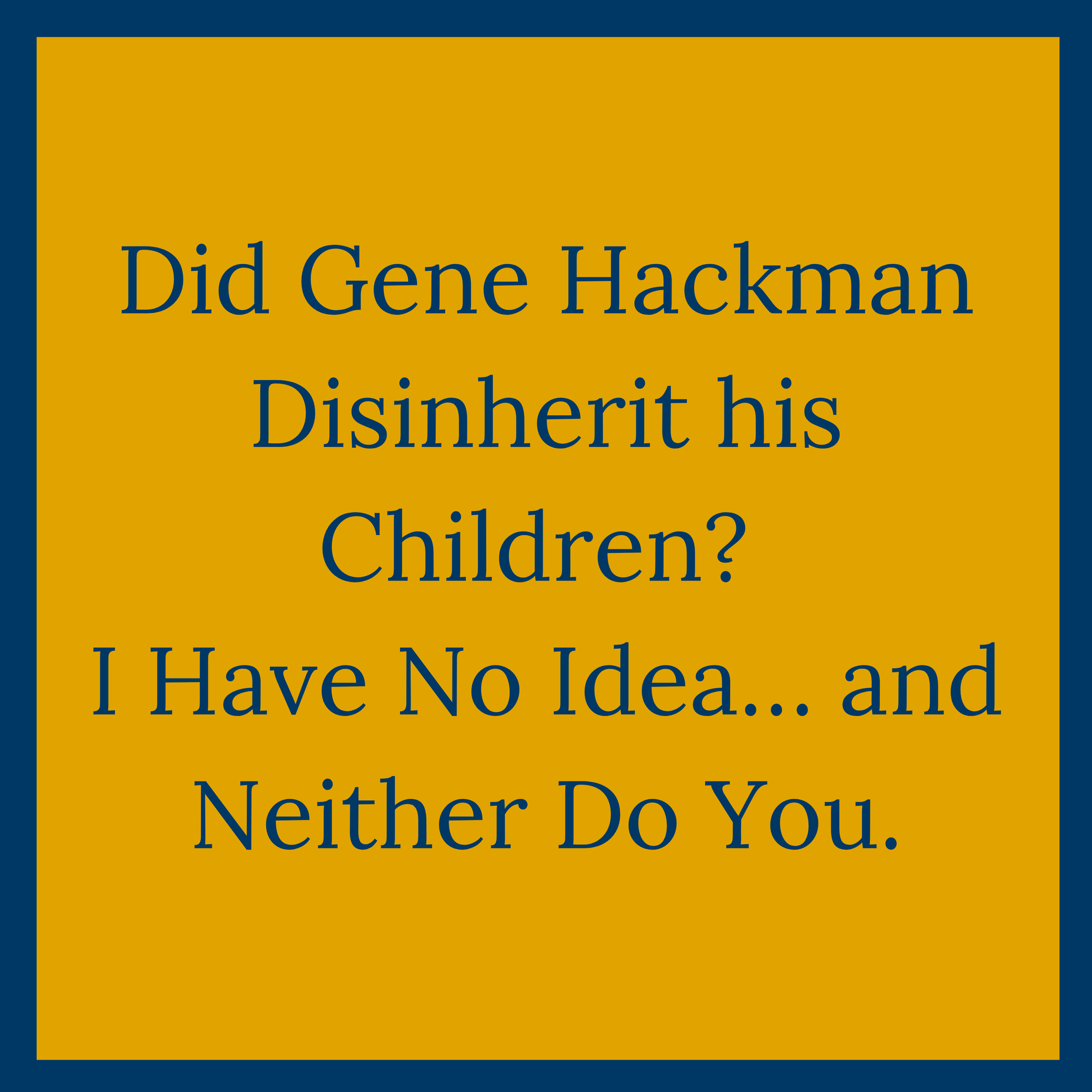Not Your Average Death Blog

How to Prevent your Estate Plan from Becoming a Family Battlefield
In Michigan, a recent guardianship case caught my attention—not just because it happened where I live, but because it’s the kind of story I see over and over again, in different forms, across the country.

The Digital Blind Spot in Your Estate Plan: A $750 Million Reminder
Imagine standing on top of a landfill, fully aware that your $750 million fortune is buried below — but barred by law from taking a single shovel to the ground.
That’s the reality for James Howells, a 39-year-old man who says his ex-partner accidentally threw away a hard drive containing 8,000 bitcoins back in 2013. Today, his story is the subject of a new documentary series: The Buried Bitcoin: The Real-Life Treasure Hunt of James Howells.
But beyond the headline-grabbing numbers and media spectacle, his experience surfaces a quieter, more relatable issue that’s often overlooked in estate planning: digital asset readiness.

It’s Going to Be Okay
In this episode of The Death Readiness Podcast, I’m not speaking as an estate attorney or a podcast host. I’m showing up as a daughter, a sister, a mother. A woman in the thick of the sandwich generation—caring for a child, walking alongside a father, and quietly planning for the day I’ll be the one who has to tell Dan again: “It’s going to be okay.”

R-E-S-P-E-C-T Your Legacy: Lessons from Aretha Franklin’s Will
I’m new to the Metro Detroit area—and I’m loving it here.
There’s a lot of pride in Detroit. People here wear Detroit T-shirts, Detroit hats—everything Detroit. We don’t need to go anywhere else when we have Detroit.
And one of Detroit’s greatest heroes—the Queen herself—is Aretha Franklin.
She’s still nearby, too: Aretha is interred at Woodlawn Cemetery, just down the road from where I live.
Aretha Franklin passed away on August 16, 2018, at the age of 76. She was unmarried at the time and left behind four adult children, including a son with special needs.
Initially, it was believed that Aretha died without a Will.

Put Yourself in a Box: Why the Harmless Error Doctrine Is No Excuse for Poor Estate Planning
A plan is only as good as the paper it’s written—and properly signed—on. A valid, signed, witnessed and properly executed Will still matters. Yet time and again, people delay. They plan to go back to their lawyer, plan to sign next week, plan to finalize their intentions when life slows down. But life doesn’t slow down. And the result? Confusion, conflict, and sometimes devastating cost.

Did Gene Hackman Disinherit His Children? I Have No Idea… and Neither Do You.
The headlines are swirling: "Hackman's children not named in actor's will.”
Is it true? I don’t know. I haven’t seen the Will.

Breaking Down the Alphabet Soup of Special Needs Estate Planning: SSI, SSDI, Medicaid & Medicare
If you’ve ever tried to plan for a loved one with special needs, you know how confusing it can be. Between navigating government benefits, avoiding costly mistakes, and figuring out how to balance personal savings with public programs, it’s easy to feel lost.
That’s exactly why I invited Kristen Lewis, a nationally recognized expert in special needs estate planning, to join me for a special two-part series on The Death Readiness Podcast. Kristen’s deep knowledge and compassionate approach make her the perfect guide to help us untangle this complicated (but critical) topic.

The Executor’s Burden: What You Need to Know
If you’ve ever been named an executor, or if you’re thinking about whom to name in your own estate plan, you might not realize just how much work this role entails. Many people assume that serving as an executor is a straightforward responsibility—gather some paperwork, pay a few bills, distribute the assets, and you’re done.
But the reality is far more complicated.

How to have conversations about death, money and estate planning
Talking about death, money, and planning ahead can be uncomfortable—especially with the people closest to us. But avoiding these conversations doesn’t make them go away; it just leaves our loved ones in the dark when they need clarity the most.
In Episode 4 of The Death Readiness Podcast, I spoke with Megan Malick, founder of A New Path, about why these topics are so difficult to discuss and how we can approach them in a way that is meaningful and productive. Megan brings a background in grief education, counseling, and after-loss support, helping people navigate both the emotional and logistical burdens of loss.

The Probate Estate Puzzle: Understanding Wills, Assets, and Legal Hurdles
Probate can be one of the most misunderstood parts of estate planning. Many people assume their assets will simply transfer to their loved ones when they pass away, but without the right planning, the process can be long, costly, and stressful.

Death Readiness: Small Steps, Big Impact
What if you died today—suddenly and without warning?
I know, it’s not the kind of question most people want to think about. But death readiness isn’t just about you—it’s about the people you leave behind. What would they need to handle? Would they know where to find important documents? How to pay the bills? Whom to call?
In the first episode of The Death Readiness Podcast, I walk through two very different scenarios: one in which nothing has been planned, and another in which everything has been organized ahead of time. The difference between these two versions of events is staggering—and it highlights why small, manageable steps today can prevent chaos and stress for your loved ones later.